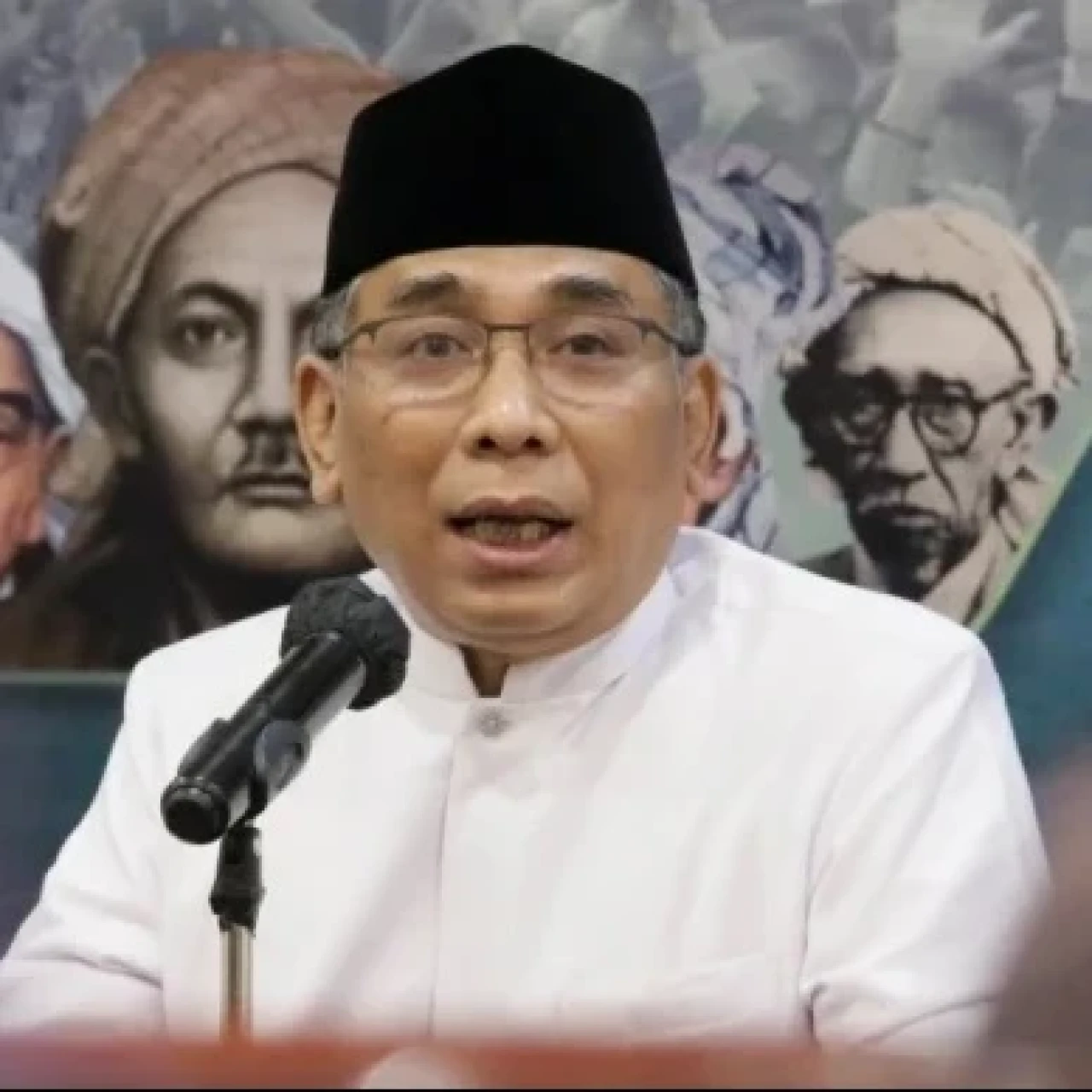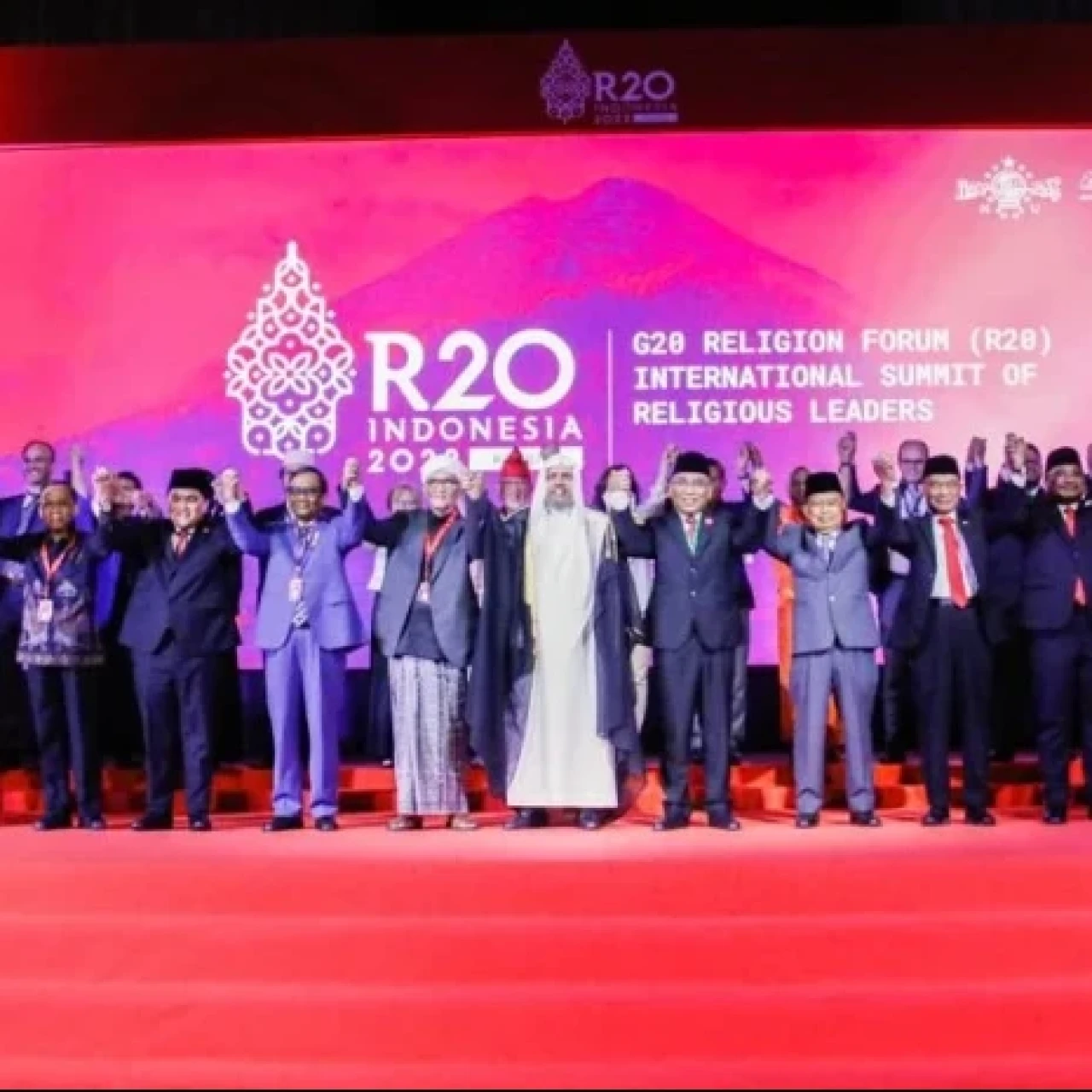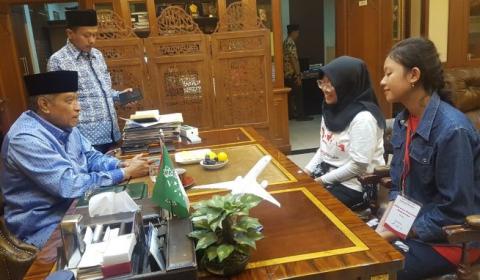The Political Alliance of Badawi-Najib in Serious Trouble?
NU Online · Ahad, 15 April 2007 | 11:34 WIB
Beneath the surface, the grand strategic alliance between the incumbent Malaysian Prime Minister Ahmad Abdullah Badawi and Deputy Prime Minister Mohd Najib Tun Razak is not as solid as the people imagine. Since 2006 up to 2007, at least there are two scandals come to the surface commanding the public attention and potentially damaging the future coalition of Badawi-Najib, the former allies of former Prime Minister Mahathir Mohamad in removing Anwar Ibrahim from the Malaysian political scene.
Since 2006, the reports have it that Najib Tun Razak allegedly got involved on the murder case of the 28 year-old Mongolian freelance model Altantuya Sharribuu and his possible involvement in the corroption practices related to the submarine deal.<>
Despite the fact that his possible involvement over the two cases has yet to be clear and firm, the polical climate in Malaysia seems quite heated and unstable. The speculation has been increasing that Najib will be forced to resign by Prime Minister Badawi, though Najib denied such speculation as just merely the rumors.
In terms of the murder case, it is undeniable that the Najib reputation will be in serious danger given the fact that the murder case involves Najib’s close reliable staff, Abdul Razak Baginda of the Malaysian Strategic Research Center.
And In addition to questions over the murder case, Najib is also under fire for the 2002 purchase by the Malaysian Ministry of Defense of three submarines that cost the treasury RM$4.5 billion (US$1.3 billion) for which a company controlled by Abdul Razak Baginda was paid a commission of RM510 million (US$147.3 million) in a sale that included no competitive tenders.
Therefore it is understandable if the domestic Malaysian politics in the upcoming months needs to be observed quite attentively. It would be quite possible that the act of destabilization against the existing Malaysian government is now being designed not only for removing Najib as the Deputy Prime Minister, but more strategically, overthrowing Prime Minster Badawi.
Under such circumstances, the two scandals disclosed to the public, is not genuinely aimed at combating corruption or enforcing the rule of law indiscriminately. Najib, the defense minister, is a staunch defender of Prime Minister Abdullah Ahmad Badawi against vociferous attacks from former Prime Minister Mahathir Mohamad. It remains to be seen if the investigation of the two scandals, will have finally any impact on Abdullah Badawi, whom Mahathir has repeatedly charged with corruption as reported by several influential mass medias all over the world.
The disclosure of two scandals, the murder case and corruption, in reality, would be potentially used by the political rivals of the duet Badawi-Najib to destabilize the existing Malaysian government, and in the final analysis, would be crippling the political force of the two within the Ruling Party UMNO (The United Malays National Organization) political constellation.
It was former Deputy Prime Minister Anwar Ibrahim who signals for the first time that the two cases are being politically used as the political weapons to attack the duet Badawi-Najib In early 2007, Anwar at the press conference urged Najib to cooperate with the police on the matter.
As if communicating directly to Najib Anwar asked: “How can a person assigned and worked under you commit or alleged to have committed such a heinous crime?” And then Anwar continued, “Is it true that Altantuya only knew Baginda, and she did not know Najib personally? Or is it true that the DPM did not know about the murder case until the taxi driver lodged the police report? He must be called up for both accounts.
As the same thing as he attacked Najib over the murder case, Anwar also bitterly assailed him over the submarine deal by questioning commissions paid over the purchase of 18 Russian Sukhoi-30 jet fighters in 2003 when Najib was defense minister. In an interview by the Al-Jazeera television network, Anwar said “There are complicities over the huge and massive commissions accrued by the government involving the Defence Ministry, Defense Minister and Deputy Prime Minister Najib Tun Razak.”
Despite its endemic corruption and the pervasive sense of rot at the top, it appears highly unlikely that the external forces have taken the important part in aggravating the political tension in Malaysia. One possible scenario is the likely involvement of United States in creating the act of destabilization.
If America gets involved in the act of destabilization for crippling the political forces of the duet Badawi-Najib, how aware Anwar Ibrahim in such dangerous political game? Is it he deliberately involved as the key player over this power chess game serving the American lobby? No confirmation is available.
But just for the record, as a former deputy prime minister and finance minister of Malaysia, in 1997 financial crisis Anwar supported International Monetary Fund (IMF) plan for recovery which meant a restructuring of the economy involving opening up to greater foreign investment and competition. He also instituted an austerity package that slashed government spending by 18%, cut ministerial salaries and deferred major investment projects. Large-scale infrastructure development projects known as "mega projects" were set back as well, despite being a cornerstone of Mahathir's plans for developing the nation.
These measures also aroused bitter opposition from Mahathir. It also angered many affected business figures some of whose business empires had developed through exclusive government contracts, cheap credit from public funds or commercial sources backed by government guarantees and concessions. The Anwar move to support IMF plan, though damaging the Mahathir business crony, but seen from Malaysian economics in reality Anwar had killed the real sectors in Malaysia thus causing the unemployment in much bigger scale, because there were so many companies faced the threat of bankruptcy following the IMF plan conducted by Anwar Ibrahim. Despite the fact that the business and economic practices in Malaysia were also influenced by nepotism and cronyism at the certain degree, though not as endemic as was in Indonesia during the Suharto regime. But supporting the IMF plan to overcome the 1997 financial crisis, was considered by the economic experts as like destroying the house just for the sake of killing the mouse within the house.
The US Strategy of Taming Malaysia?
Back to the two scandals possibly involving Najib Tun Razak, Prime Minister Badawi should handle these risky scandals wisely and smartly. Because seen from the US scheme for destabilizing Malaysian politics the solidity of the duet Badawi-Najib can be easily undermined if the two scandals fail to be handled wisely. In other words, the dispute between Najib dan Badawi will be easily triggered leading to the split between the two.
Based on the track record of Anwar Ibrahim in the past, it is logical if United States has its interest in paving the way for Ibrahim back on political stage. The only way of realizing such agenda, it would be no choice but removing step by step Najib and then Badawi.
It is a public secret that United States has the economic agenda in Malaysia to urge the government in Kuala Lumpur to open up the negation concerning the Free Trade Area Agreement.
That’s why understandable if there are those who said that US tried to use Anwar Ibrahim as the principle player to remove Najib Tun Razak by attacking the involvement of Razak over the submarine-deal when he was still the Defense Minister.
If the first scenario succeeds to remove Razak, Ibrahim is expected to come back on political stage by joining forces again with UMNO or becoming the chairman of his Justice Party in much more powerful position in dealing with the Malaysian political elites in the ruling party UMNO.
Under such circumstances, Ibrahim would be in the strategic position for conditioning his chance to be the elected Malaysian Prime Minster by removing Badawi through general election or through internal power struggle within UMNO.
What makes it more dangerous is not the possible result of this risky power chess game, but the process that leads to the crisis in Malaysia at the massive scale.
Just for the information, amid the information that US is trying to persuade the ASEAN countries to build the regional military alliance under its influence named ASEAN DEFENSE FORUM, the two steps scenarios removing the duet Badawi-Razak masterminded by US, the US-influenced new Prime Minister whether Ibrahim or whoever they might be, soon or later will bring Malaysia under the satellite of US rather than the sovereign state and independent in its foreign policy.
Consequently, Malaysia under Ibrahim or whoever take over the Malaysian government under this scenario, will be supporting without reserve all US interests and agendas in Malaysia domestically or related to much broader scale in Southeast Asia. In such situation, the neutrality of ASEAN will be in danger because Malaysia as the sovereign and independent state, together with Indonesia have successfully played its role as the stabilizing and balancing forces within ASEAN over the last three decades. And if the step by step coup succeeds, the reputation of Malaysia as the sovereign and independent states among the ASEAN and the international community, will be eroded.
Such kind of step by step coup, in fact have the similarity to what happened in Thailand where Thaksin Siniwastra was overthrown by the generals at the pretext of removing the corrupt politician like Prime Minister Thaksin.
The Impact on Indonesia
The fact that United States is very eager to control the Malaka Straits for containing China threat as the future US rival in Southeast Asia, it would be quite possible that the situation in the Malaka Straits will not be conducive and insecure. This situation will not make Indonesia happy and against the interest of Indonesia to preserve ASEAN as the stable and secure region in Southeast Asia.
And more dangerously, because of its close connection with Malaysia many centuries ago, the possible civil war or political disturbances in Malaysia, will not be conducive for Indonesia, Philippine, and Thailand.
Given the fact that there are close connection between Malaysian political elites with the Indonesians since the confrontation broke out in the 1960s, it might be possible that the split among the Malaysian elites will also involve the certain factions among the Indonesian elites be they on the basis of religious ties, ethnic ties, business connections, and so on and so forth.
Such condition finally also creates the unstable political situation in Indonesia, and causes unrest and uncertainty in its strive for reinventing Indonesia in all fields.
The writer is Executive Director of Indonesia Future Institute(IFI)
Terpopuler
1
Khutbah Jumat: Ramadhan dan Kesempatan yang Tidak Selalu Terulang
2
Innalillah, Ulama Mazhab Syafii asal Suriah Syekh Hasan Hitou Wafat dalam Usia 83 Tahun
3
Kultum Ramadhan: Lebih Baik Sedikit tapi Istiqamah
4
Keluar Mani yang Tidak dan Membatalkan Puasa
5
Khutbah Jumat: Ramadhan, Melatih Sabar, Memperkuat Syukur
6
Khutbah Jumat: Tiga Kebahagiaan Orang Puasa
Terkini
Lihat Semua














